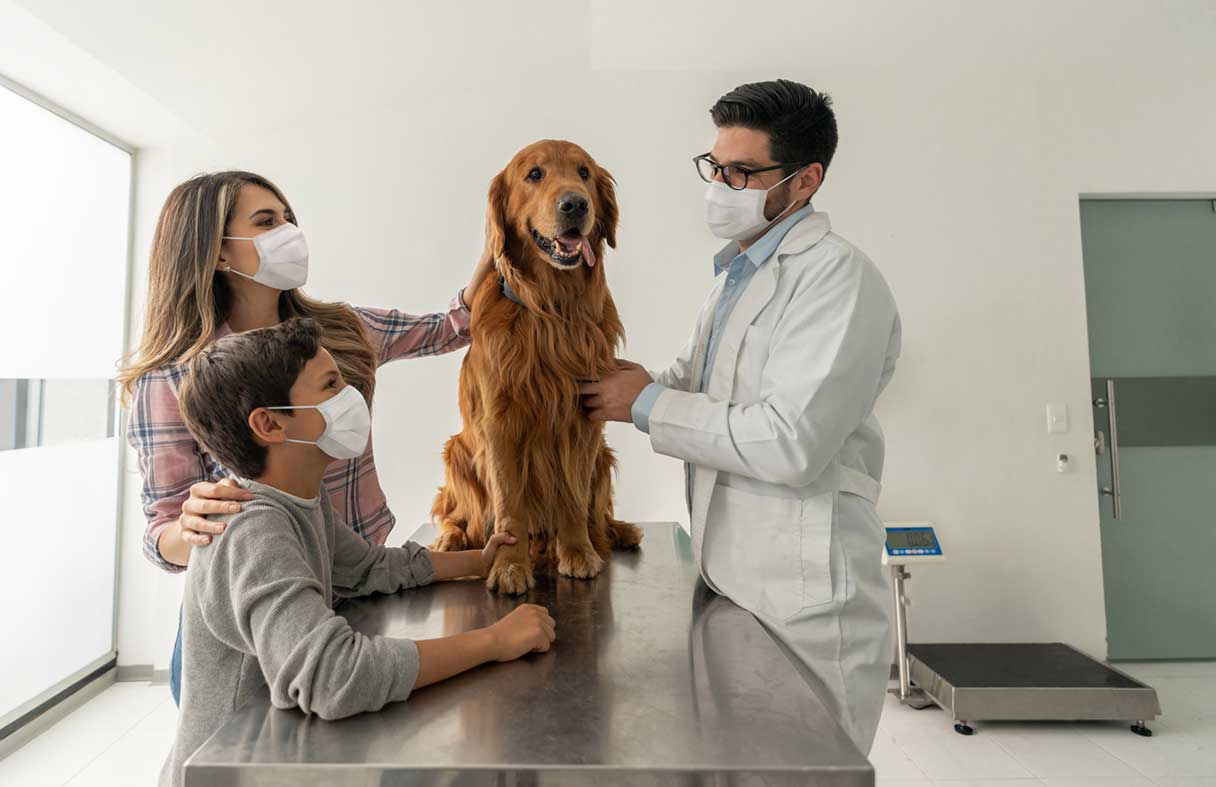Snake bites are a common occurrence in dogs, especially in areas with a high population of venomous snakes. Venomous snakes such as copperheads and rattlesnakes pose the most threat to dogs due to the venom in their bites, but even non-venomous snakes such as garter snakes can cause injury with their bites.
The prevalence of snake bites in dogs is due to their curious nature and tendency to explore their environment using their nose and powerful sense of smell. Unfortunately, snake bites can be especially dangerous for dogs, as dogs are closer to the ground and therefore more likely to be bitten on the face or neck, which can cause swelling that may obstruct their airway.
Additionally, the venom of some snakes can cause life-threatening symptoms such as organ failure, bleeding disorders and difficulty breathing in dogs. If your dog gets bitten by a snake, it's important to act quickly and seek immediate veterinary attention.
Signs of a Snake Bite in Dogs
Signs that your dog has been bitten by a snake can vary widely depending on the type of snake that administered the bite, the amount of venom injected, the location of the bite and the size and age of the dog.
Typically, signs of a snake bite become apparent within 30 minutes to two hours after the bite, but in some cases, they may be delayed as much as eight hours after the bite. If you live in an area where snake bites are common, knowing the symptoms of a snake bite is essential to ensure your dog receives proper care as soon as possible after the bite occurs.
Signs that your dog may have been bitten by a snake can include:
- Rapid swelling
- Visible puncture wounds
- Pain
- Redness
- Bleeding
- Tissue necrosis
- Enlarged lymph nodes
- Lameness, if bitten on a limb
- Bloody stool
- Vomiting blood
- Urinating blood
- Bleeding from the nose
- Difficulty breathing
- Elevated heart rate
- Weakness
- Stumbling gait
- Seizures
- Coma
- Shock
- Sudden death
If you suspect your dog may have been bitten by a snake, don't wait. Seek veterinary attention immediately.
Snake Bites: Immediate Actions to Take
If your dog is bitten by a snake, seek veterinary care immediately. Don't try to administer any care yourself — you'll be doing more harm than good. Identifying the type of snake that bit your dog is useful information for your veterinarian, but do not waste time or risk injury by attempting to find or catch the snake.
Even a non-venomous snake can cause significant injury with its bite, so a trip to your veterinarian is warranted regardless of the type of snake that bit your pet. Prompt veterinary treatment is crucial to a successful outcome after a snake bite, so getting your pet to the nearest veterinarian or emergency veterinary hospital is of the utmost importance.
Veterinary Treatments for Snake Bites
Treatment for snake bites must be initiated as soon as possible in order to have the best possible outcome. Treatment for snake bites primarily relies upon the use of antivenin, which is an intravenous injection that binds to and neutralizes the venom toxins in your dog's body. Antivenin is most effective if administered within four hours of a snake bite, so it is essential that your dog receive veterinary care promptly.
In addition to antivenin, your dog will need supportive care. This may include surgery to remove any necrotic (dead) tissue from the site of the bite, intravenous fluids to combat shock and low blood pressure, pain medications or antibiotics for infection.
Following treatment for snake envenomation, it is recommended that your dog be monitored for several weeks. This may include repeating blood work to check your dog's blood clotting ability and kidney values, which can be affected by snake venom up to three weeks after the bite.
Dog snake bite treatment cost
Unfortunately, treatment for a snake bite can be quite expensive. The average vial of antivenin costs $600 to $1,0001 and dosages for dogs range from one to 20 vials.
Some dogs will require repeat dosing of antivenin. This also does not include the additional costs of emergency care, diagnostic testing, supportive care or surgery.
Altogether, the treatment cost for a dog bitten by a snake is often more than $2,500.1
Home Remedies for Snake Bites in Dogs
Home remedies are not recommended for snake bites, as they are unlikely to be effective and delays in seeking veterinary treatment may cause a significant worsening of your pet's condition.
Snake Bite Kits for Dogs
The use of a "snake bite kit," which typically involves a suction device, is not recommended as research indicates these kits do not work and will only result in delays in seeking medical attention. Instead, focus on getting your pet to a veterinary hospital as soon as possible after a snake bite has occurred.
Preventing Snake Bites in Dogs
If you live in an area where venomous snakes are common, it's important to be aware of snake habitats and take steps to prevent your dog from being bitten. The good news is that snakes generally do not want to bite, either defensively or aggressively. Snakes prefer not to interact with humans or pets and will leave you alone unless they are threatened.
To prevent snake bites, stay on walking paths and maintained trails, and do not walk your dog in areas of high grass or rocky outcrops, as these are areas most likely to harbor snakes. Do not allow your dog to dig in holes or under rocks or logs where snakes may be hiding. Keep your dog leashed and under control at all times so that you can quickly move away from an area if you spot a snake. If a snake sees you, stop and give the snake time to move away on its own — it is unlikely to cause you harm unless you continue to pose a threat to it.
Never allow your pet to investigate snakes that appear to be dead or roadkill. Not only can they sometimes be deceptive, but even a truly dead snake still contains venom and envenomation from a dead snake is possible.
In areas where venomous snakes are common, training classes to teach dogs to avoid venomous snakes are often available. Historically, these classes have used aversive training methods such as an electric shock to instill fear into the dog. This type of training method is not recommended by the American College of Veterinary Behaviorists because aversive training methods can be dangerous, may contribute to behavior problems, and pose a threat to animal welfare.2 However, some modern trainers do offer snake avoidance training classes using positive reinforcement training, which is a safer and more effective training method for your dog.3
Rattlesnake Vaccine for Dogs
As an added measure of protection, pet owners in areas with a high venomous snake population may want to consider vaccinating their dogs with the Crotalus Atrox Toxoid (CAT) vaccine, also known as the rattlesnake vaccine.
The vaccine is specific for western diamondback rattlesnake venom but may offer some cross-protection for some, but not all, other types of crotaline snake venoms.
Vaccination with the rattlesnake vaccine may help decrease the severity of snake bite signs in vaccinated dogs. However, vaccination does not replace the need for immediate veterinary care after a snake bite and some dogs may still require treatment with antivenin even if they are vaccinated.
Snake Bites in Dogs: An Emergency Situation
If you live in an area where venomous snakes are common, a snake bite must be taken seriously. If you know or even suspect your dog has been bitten by a snake, don't wait. Seek veterinary care immediately. Knowing the signs of a snake bite and taking action quickly could save your dog's life!
CareCredit Credit Card Financing for Veterinary Treatments
The CareCredit credit card provides a convenient way to pay for your dog's emergency care, vaccinations and other health and wellness expenses, including exams, medications and products at providers in the CareCredit network.* Apply today and continue your wellness journey by downloading the CareCredit Mobile App. You can find a provider on the go, manage your CareCredit account and easily access the Well U hub for more great articles, podcasts, and videos. Use our Acceptance Locator to find a veterinarian that accepts CareCredit to help keep your pet healthy and happy for a lifetime of love.
Author Bio
Dr. Elizabeth Racine is a small animal general practice veterinarian and freelance writer. She covers both human and veterinary medicine with a special interest in nutrition, internal medicine and veterinary behavior.








